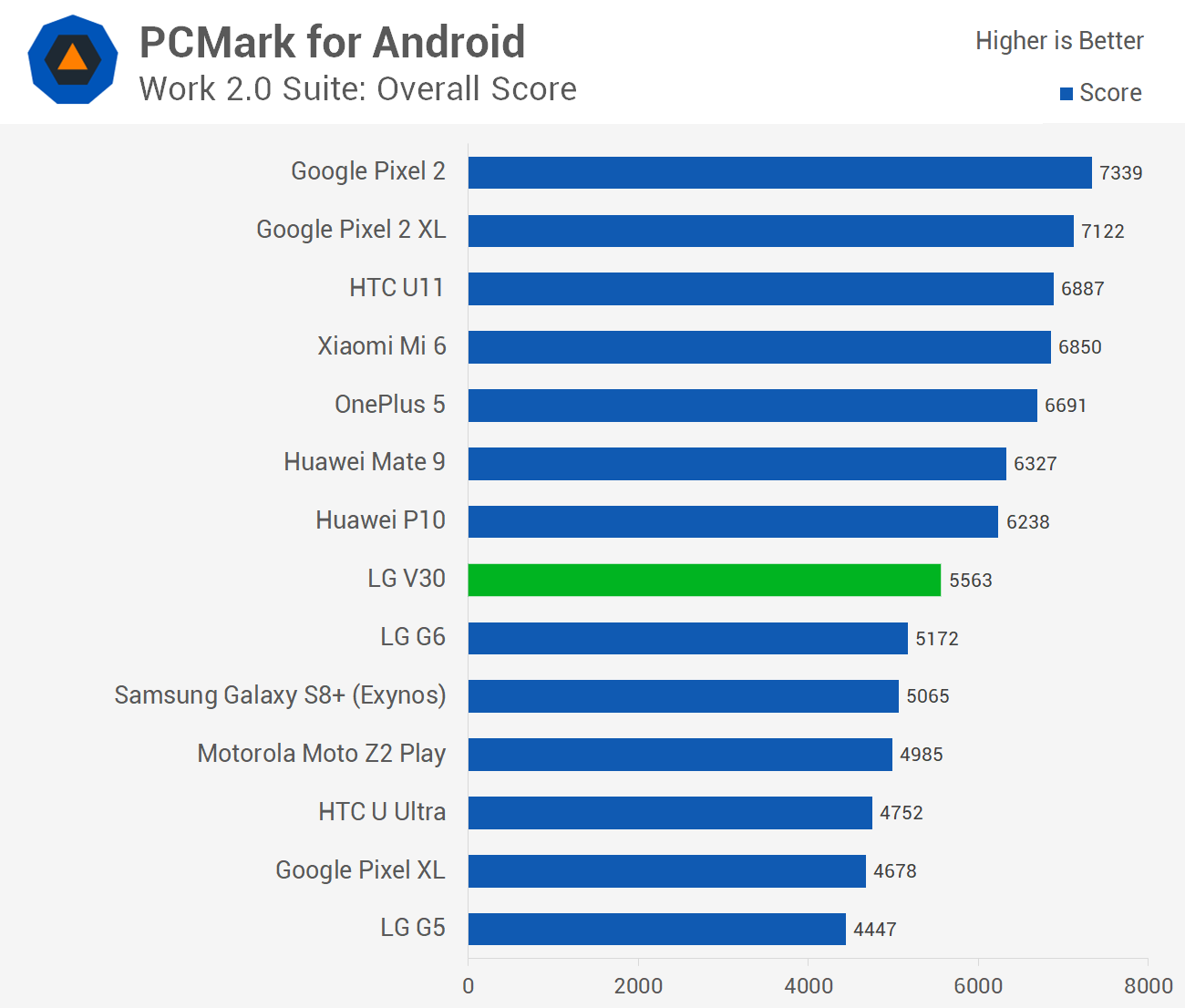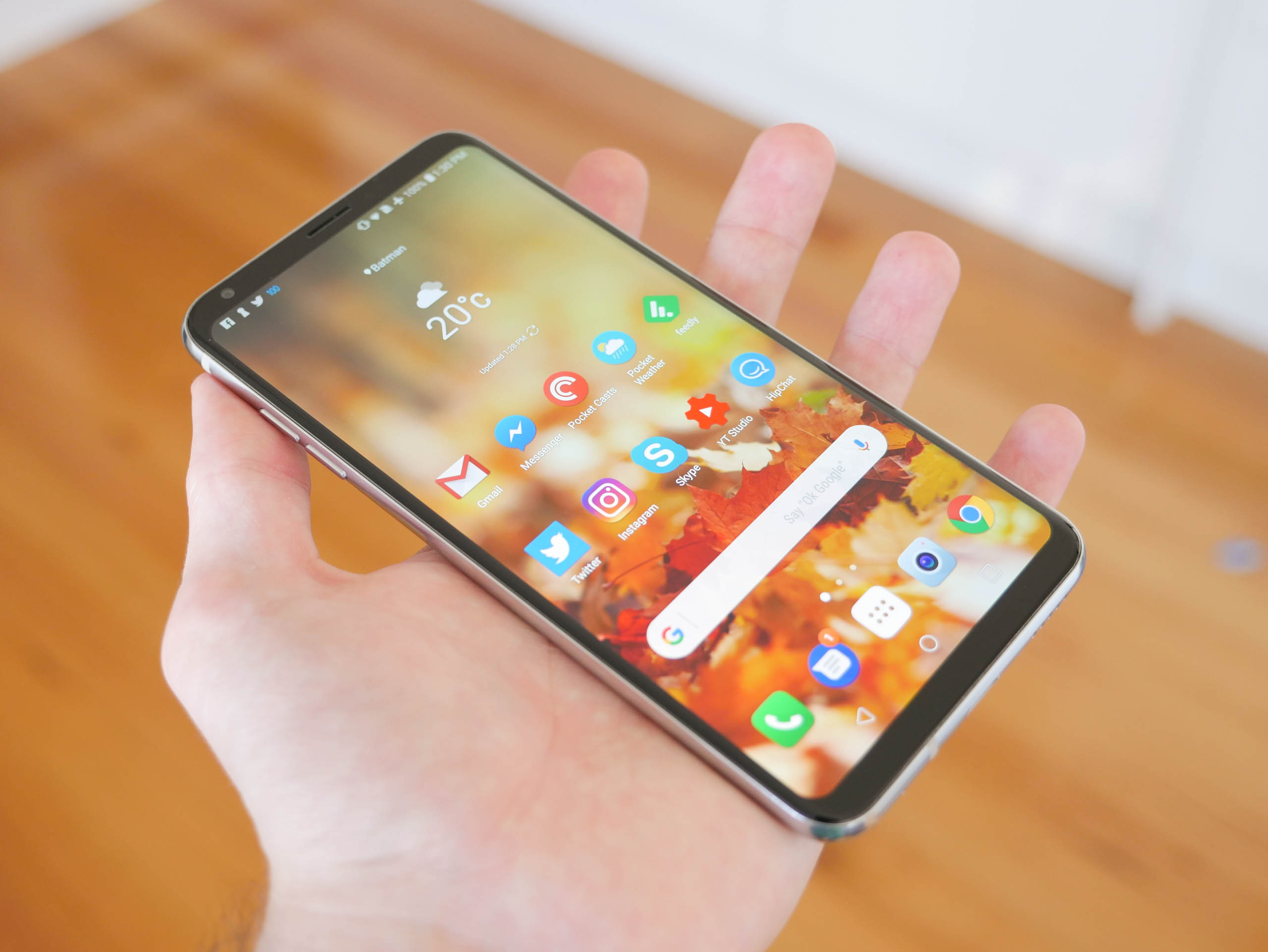System Performance
There's a fairly standard story to the hardware in the LG V30. There's a Qualcomm Snapdragon 835 SoC with 4GB of RAM and 64GB of storage (128GB in the V30+).
The Qualcomm Snapdragon 835 is an octa-core SoC with two quad-core Kryo 280 CPU clusters: one efficient cluster operating at 1.9 GHz, paired with a high-performance cluster at 2.45 GHz. The GPU is an Adreno 540 clocked up to 710 MHz, and there's an LPDDR4X memory controller providing 29.8 GB/s of bandwidth.
The V30 is one of a small handful of phones that supports the full capabilities of the Snapdragon X16 modem in the Snapdragon 835. In other words, you get Cat.16 Gigabit LTE with speeds up to 1000/150 Mbps down/up. There's also Bluetooth 5.0, Wi-Fi 802.11a/b/g/n/ac, and NFC.
Unlike the G6, which was powered by a Qualcomm Snapdragon 821 SoC, the V30 comes with a complete set of modern smartphone hardware. There's basically nothing missing here, and it's great to see features like Gigabit LTE included, which will ensure the phone is still relevant from a wireless connectivity standpoint in years to come.
One thing I did notice, however, is that the V30 didn't feel quite as fast and fluid to use next to the Pixel 2 XL. The V30 is stuck on Android 7.1, a version behind the Pixel, and it does pack a heavy software skin with a lot of bloatware. Both things could be contributing factors, but of course, it's always worth checking benchmarks to confirm my thoughts on performance.







As you might have noticed throughout these system benchmarks, the V30 doesn't quite match the performance of other Snapdragon 835 powered handsets. While devices like the Pixel 2, HTC U11 and Xiaomi Mi 6 are all clustered towards the top of these charts, the V30 is a few steps behind. This is unusual behaviour for a top-end smartphone, so it's worth investigating.
In CPU-heavy workloads, the Pixel 2 XL is around 20 to 25 percent faster, which is a significant margin in these benchmarks. While the other S835 handsets fall within a few percent of the Pixel 2 XL, it's clear the V30 is lagging behind. For instance, the V30 is only 13 percent faster than the G6 on average, while the Pixel 2 XL is more like 34 percent faster than the G6.
After examining this behaviour closely, it appears the V30 adjusts the clock speed of the 'performance' Kryo 280 CPU cores more aggressively than other handsets. The V30 steps back from using a maximum clock speed of 2.45 GHz earlier and more frequently, often hovering around the 1.9 to 2.0 GHz mark instead. As the CPU isn't pegged at 2.45 GHz for as long, it delivers inferior performance to other S835 devices.
This could be the cause of the slightly worse performance I experienced in applications relative to the Pixel 2 XL, although the Pixel is a blazing fast handset with its bloatware-free Android implementation. I assume LG opted for this more aggressive clock management as a form of always-on power saving. We'll see whether that pays off later.
